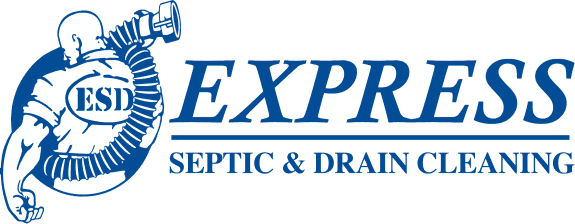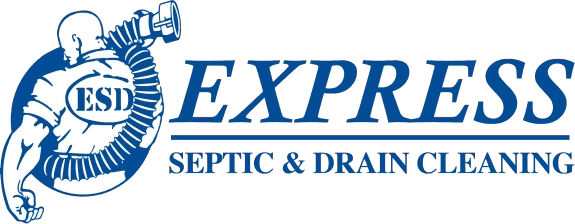Since 2006, Express Septic & Drain Cleaning has provided septic pumping for customers in Nampa, ID. Many homeowners in Nampa, ID, don’t think about their sewage, but proper maintenance is important to have a sanitary, reliable septic system. At Express Septic and Drain Cleaning, we’ll handle your septic tank pumping in Nampa, ID, for a reliable, high-performance system. We offer local, hassle-free septic services you can count on.
Septic Pumping Services in Nampa, ID
Terms & Conditions: Any branch line or mainline is $99 (Secondary Lines and Mainlines) Not the whole home.

What’s Included in Our Septic Tank Pumping Service
Here’s what to expect when you choose us for your septic pumping in Nampa.
Full-service pump-out
Our full-service septic system pumping in Nampa includes removing all sludge, scum, and wastewater. Next, we check the inlet and outlet baffles for damage. We’ll hose off and clean the interior of your tank and perform a visual inspection to look for cracks or leaks.
Optional add-ons
If you don’t know the location of your tank, we’ll help you locate it for easier future maintenance. Additional optional add-ons include cleaning or replacing the filter and inspecting the drain field. We can also add an enzyme treatment or make recommendations to keep your tank cleaner for longer.
Signs It’s Time to Pump Your Septic Tank
Look for these signs that you may need professional septic tank emptying in Nampa.
Common warning signs
These common warning signs indicate it’s time for our septic tank service:
- Drains are slower than normal, or toilets or pipes are gurgling.
- You smell foul odors coming from your drains or outside your home.
- There are wet spots in your yard or areas of lush grass near or over the tank area.
- You notice sewage backing up into your sinks, tubs, or other plumbing fixtures.
General pumping schedule
Following a schedule helps you maintain a routine septic tank cleanout. Most households should have septic tank pumping done every three to five years. If you have a larger household or a small tank, pump your tank more frequently.
Schedule annual inspections if you have a garbage disposal or high water usage.
Why Nampa Homeowners Choose Us for Septic Pumping
Here’s why so many homeowners choose us as their local septic company in Nampa:
- Family-owned and local: We’re not a franchise — we live and work right here in the Treasure Valley and treat your property like our own.
- Licensed, reliable, and fast: Our septic pros are fully licensed and insured with years of experience. We show up on time, pump efficiently, and follow all Canyon County codes.
- Protect your property and peace of mind: Scheduling regular pumping prevents sewage backups, environmental hazards, and expensive drain field repairs for peace of mind.
What To Expect When You Book With Us
Here’s what our customers can expect when scheduling a service with Express Septic and Drain Cleaning:
- You can easily schedule your septic service by phone or online.
- We’ll locate and uncover your septic tank if needed.
- When we arrive, we fully pump and clean your tank.
- After pumping is complete, we inspect for visible issues and offer honest recommendations.
- We’re happy to answer your questions before we leave, so you’re confident about our service.
Contact Express for Septic Pumping in Nampa, ID
Whether you need emergency septic pumping in Nampa or just routine maintenance, the experts at Express Septic and Drain Cleaning are here for you. Since 2006, we’ve made it easy for homeowners to optimize their septic systems and avoid unnecessary damage or repair costs. Contact us today to schedule septic tank pumping or any of our other services.
Contact Express Septic & Drain Cleaning today to schedule routine or emergency septic system pumping in Nampa.
Frequently Asked Questions
What happens if I don’t pump my septic tank regularly?
If you don’t pump your septic tank regularly, you could deal with a variety of issues, including tank overflows and backups, slow drainage, and drain field problems. It may also lead to health problems like contaminated groundwater or bacteria exposure.
What Zip Codes do you serve?
We proudly provide septic pumping services in Nampa zip codes 83686 and 83687.
Are permits required for septic tank pumping in Nampa?
Yes, permits are required for septic tank pumping in Nampa for the transportation and disposal of the contents of the tank. Additionally, anyone who operates septic tank pumping equipment must obtain a permit from the Idaho Department of Health and Welfare.
Does the number of people in the house affect how often I should pump?
Yes, the more people in your home, the more wastewater you generate. Therefore, you may need to have your septic tank pumped more often than every three to five years. We recommend at least one annual inspection to determine whether septic tank pumping is required.
Why is regular septic pumping important?
Regular septic pumping is crucial to prevent system overload, reduce the risk of backups and overflows, and maintain the efficiency and longevity of your septic system.
How often should I have my septic tank pumped?
It is generally recommended to have your septic tank pumped every 3 to 5 years. However, the frequency can vary depending on the size of your tank, the number of people in your household, and your water usage habits.
What are the signs that my septic tank needs pumping?
Signs that your septic tank needs pumping include slow drains, gurgling sounds in the plumbing, unpleasant odors around your septic tank or drain field, pooling water in the yard, and sewage backups in your home.
What does the septic pumping process involve?
The septic pumping process involves a professional technician locating the septic tank, removing the access lid, and using a vacuum truck to remove the accumulated sludge and scum from the tank. The tank is then inspected for any issues before resealing.
Can I pump my septic tank myself?
Pumping a septic tank requires specialized equipment and expertise to safely and effectively remove waste and inspect the system. It is best to hire a professional to ensure the job is done correctly and safely.
Are there any signs of septic system failure I should watch for?
Signs of septic system failure include persistent slow drains, frequent backups, foul odors, lush green grass over the drain field, and standing water in the yard. If you notice any of these signs, contact a professional immediately.
Contact Express Septic & Drain Cleaning Now
©2026 Express Septic & Drain Cleaning. All Rights Reserved. License: #2-24937. Privacy Policy | Manage Cookies | Sitemap | DSAR.



